Inequality Readers. Yes, inequality lowers median incomes.
Matthew Yglesias read some of Lane Kenworthy's work!! Yay! Unfortunately, he didn't read until the end.
Matthew Yglesias is a political commentator and runs a very successful Substack, Slow Boring. I enjoy reading it, I have learned a lot from it, and the blog has one of the more interesting and vibrant comments sections on the internet.
About a month ago, I was pleased to see that Yglesias referenced Lane Kenworthy, a great sociologist who studies inequality, during one of his Q&A posts (some other Tom asked the question here, not me! Just a coincidence).
What we have here is a classic framing of inequality discourse: inequality itself is not a problem insofar as poverty is alleviated and conditions at the bottom of the income distribution are adequate.
I’m going to primarily rely on two of Kenworthy’s recent books below, Social Democratic Capitalism and Would Democratic Socialism Be Better
I think Yglesias may have missed some of Kenworthy’s subtler points. There may actually be a bit of a tradeoff between inequality and middle-class prosperity. I mean, to give away the plot, here is one of Kenworthy’s conclusions at the post Yglesias links to to get the chart!
Compare that to Yglesias’ claim based on this link:
I have given up on the idea that thought leaders carefully read things. Intellectually, I realize that thought leaders, inside the academy, outside the academy, at prominent newspapers, on blogs, on social media, really care more about saying novel and interesting things to drive engagement. Careful engagement of long texts is not a priority. But it still kind of shocks me when I am reminded of this reality in the wild!!
Anyways. Let’s dig into some of Kenworthy’s writing.
What Kenworthy Says
I love this excuse to dig into some of the portions of Kenworthy’s books. He’s such a great and careful scholar.
To begin, economic growth and incomes below the 80th percentile have decoupled since the 1970s:
Here we see the decoupling in the US:
The US (and Germany and Japanese) middle incomes underperform relative to economic growth.
High inequality, especially earnings going to the top 1ish percent, may have some responsibility.
Kenworthy’s three reasons: math, timing, and wage trends.
Overall, middle incomes are about 15% lower than they would be if growth and middle incomes had remained coupled. Not a devastating hellscape, but a pretty sizeable chunk of change!
To return to Yglesias’ point - he said that America’s relative underperformance of low incomes is what matters. It would be a different case if inequality had a sizeable effect on the typical American. I mean … taking a chunk out of the median American’s income that is roughly equivalent to buying a mid-ranged used boat every other year seems pretty consequential!!
While I’m sympathetic towards a focus on poverty reduction, America does really have high inequality. And even if it’s just something that lots of people care about, it’s worth thinking that such high inequality levels may have distorting, perhaps even degrading, effects that are hard to detect with survey data.
Even if you exclude the top 1% and just look at the remaining 99%, America is very unequal.
I should say - I have differing opinions than Kenworthy about this point. From his book, Would Democratic Socialism be Better?
In fact, Kenworthy has a pretty spicy book coming out that I believe will push against the more extreme inequality-as-monocause-of-all-problems arguments that dominates much of the literature!
Reasonable minds can, and do, disagree. And I’m very aware that I may be wrong.
And yet … I think it’s important to realize that inequality may be undermining about 14% of the potential income of median households in America. This is … very different than what Matthew Yglesias claims. Unfortunately, he has a massive audience and so lots of folks probably have developed an idea that there is a basic duality between inequality and poverty, and that inequality doesn’t do much beyond its effect on poverty. But you, brave reader, sit at the very small and nice cool kids table. And now, you know that in fact a boat is taken away every other year from the typical American because of inequality. Revel in your slightly more accurate knowledge!



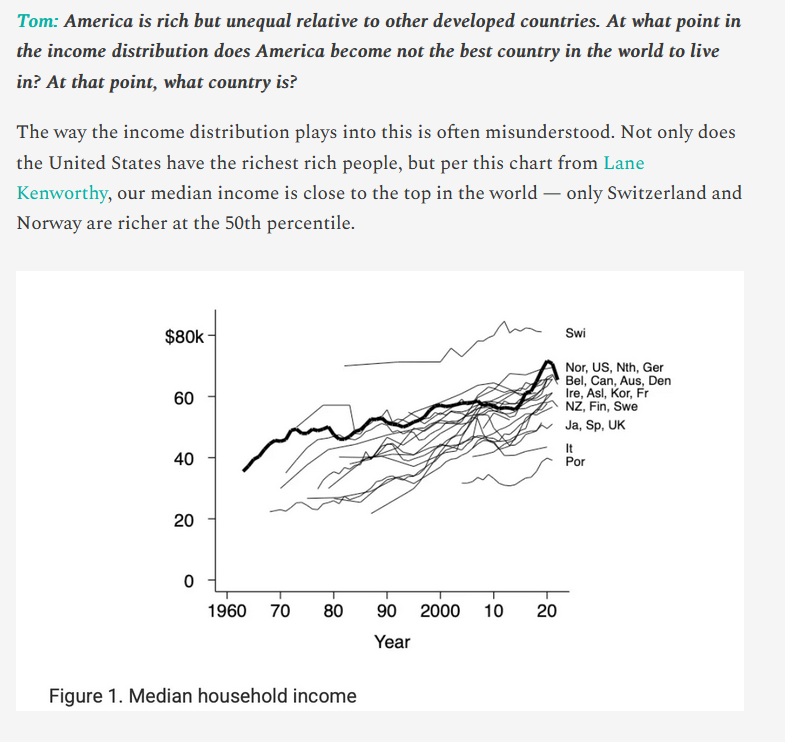
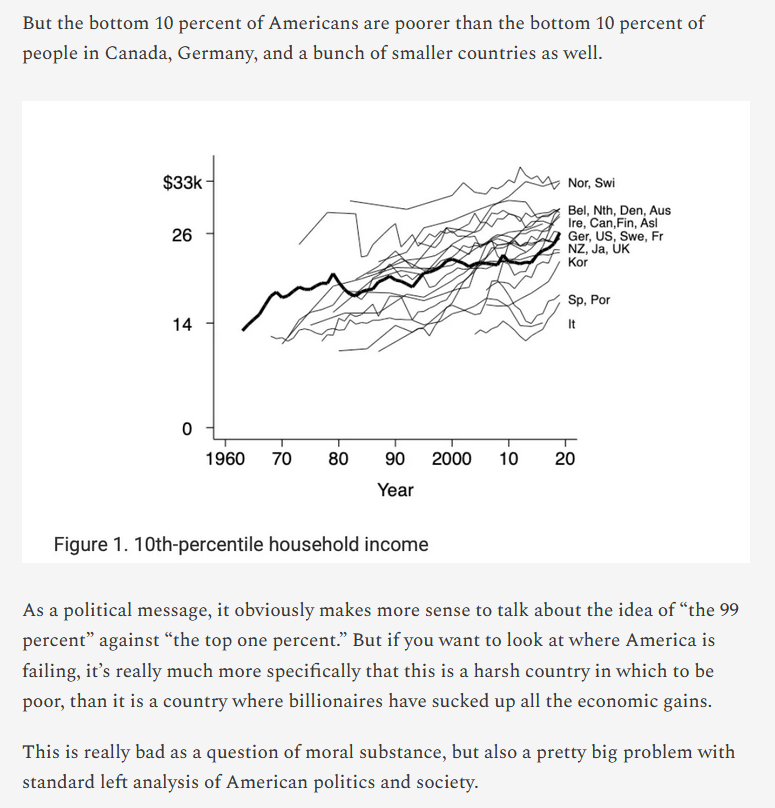

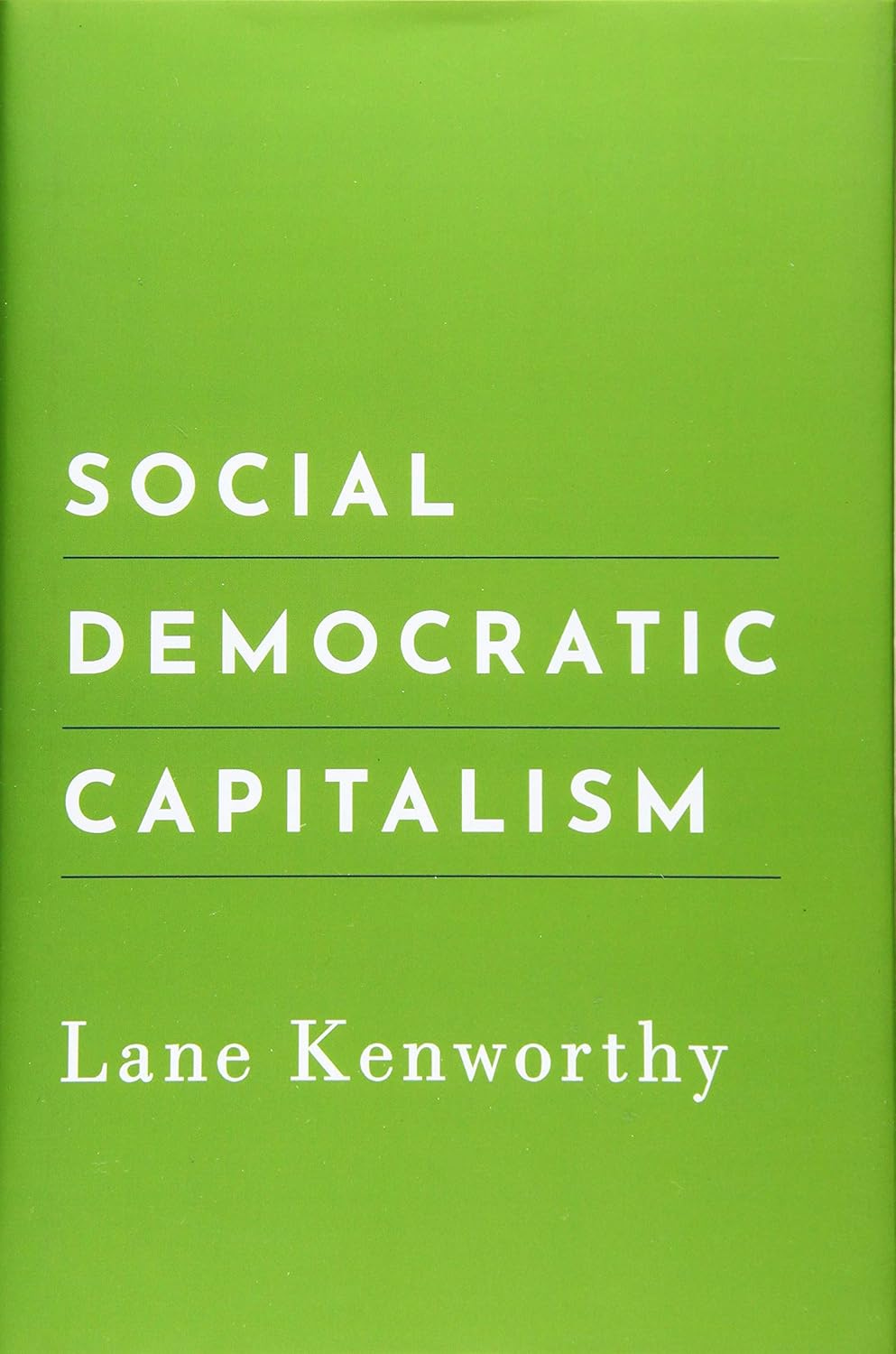
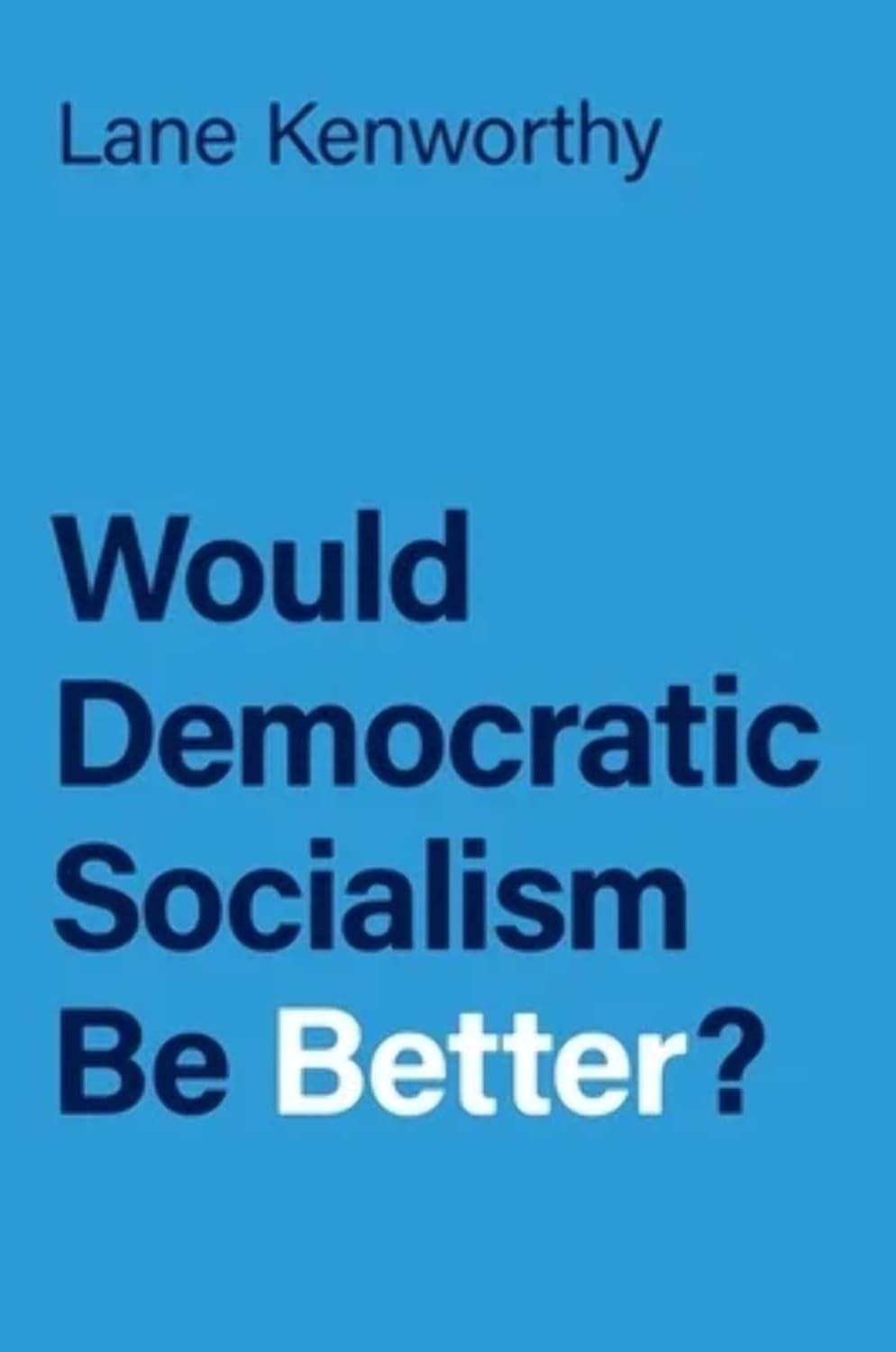



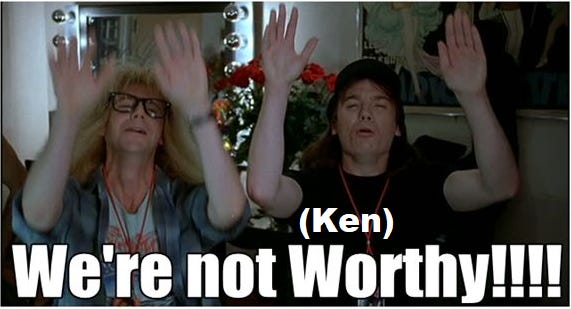

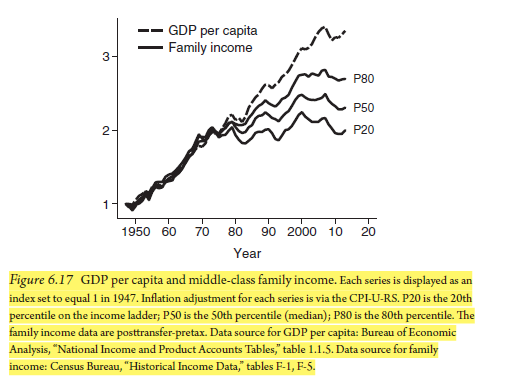




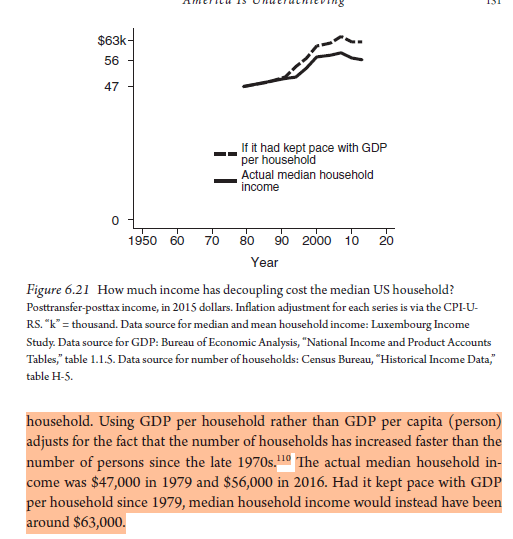


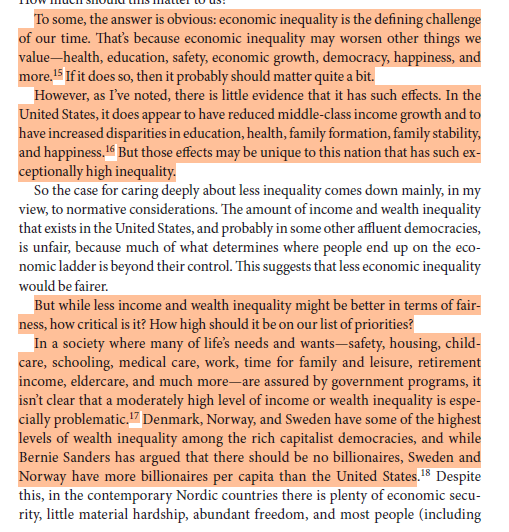
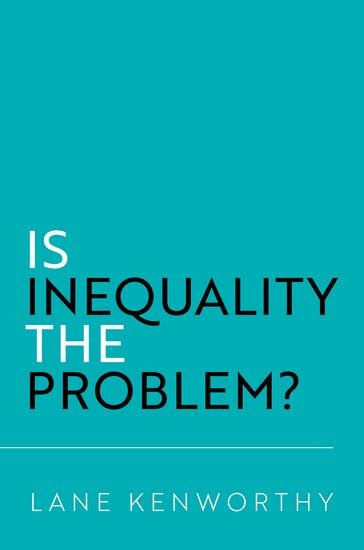
Is it not a bit tautological to say the income inequality causes lower wage growth at the median? Whatever measure of inequality you use, Gini coefficient or otherwise, is a function of median income. Maybe you address this with a lag, but this is not particularly convincing given that these things are autocorrelated.
Yglesias seems to be saying, we should focus on median and lower incomes as important outcomes, rather than inequality itself. One reason is that a country can become more unequal if top incomes grow, all else equal. This is a Pareto-improvement!
Now, given Yglesias’ point, he still misses what you point out here, that median income growth has slowed down. But the reason for this stagnation is more important. Is it some distortion that we can fix? Or, a popular hypothesis among economists, does it reflect drastically increasing returns to high end human capital?
Yes - I think some of the non-material aspects of inequality may be the more important ones. Losing a boat is bad, but losing your sense of community and shared purpose may be worse. And these may have larger long-term effects on well-being. These include: political capture, degrading communal values and willingness to contribute/sacrifice for communal good, distribution of opportunity, sense of community (writ-large).